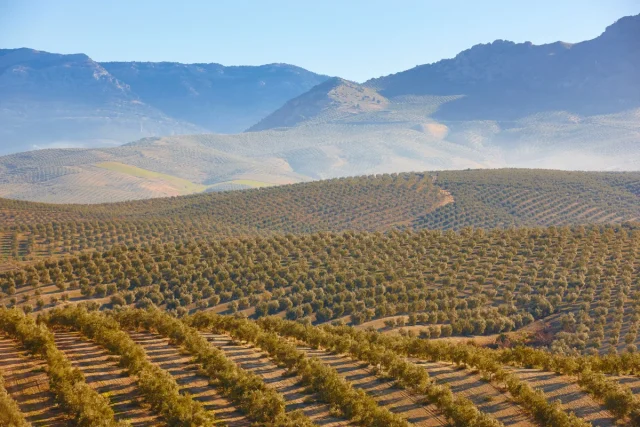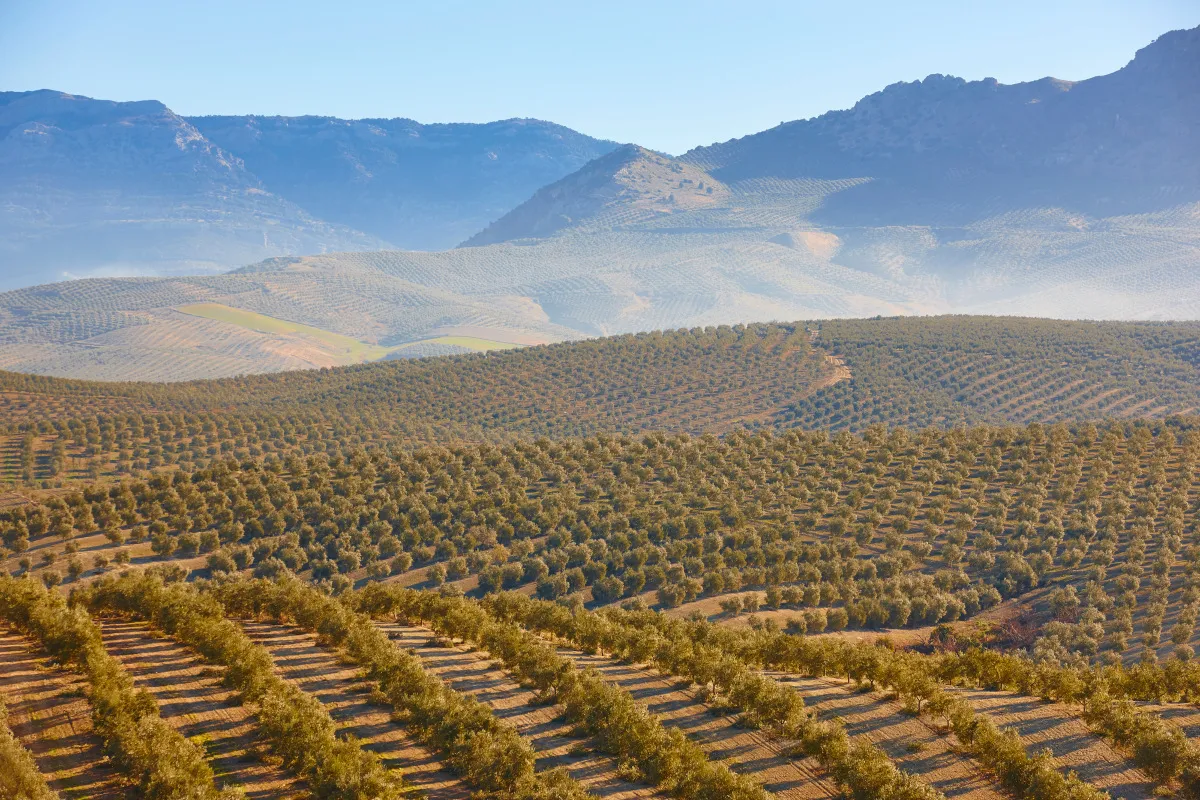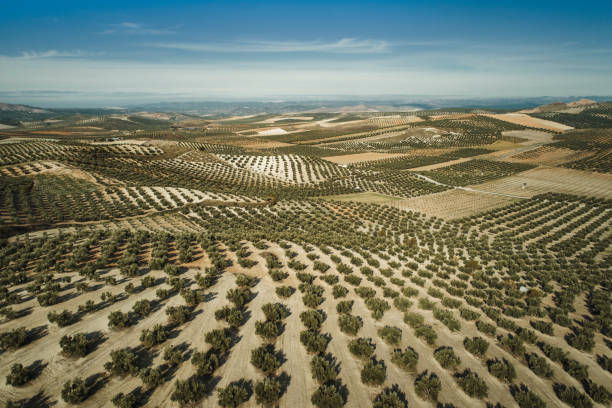
Climate fanaticism is sweeping away prosperity.
This is not mere opinion. It is fact. In Spain, the existence of a project to set up a photovoltaic energy mega-factory in several municipalities in the province of Jaén, on a gigantic area that could eventually lead to the uprooting of up to 100,000 hundred-year-old olive trees, has once again made headlines.
In reality, and according to a comprehensive technical report requested by the Lopera Town Council, the applicants for the authorisations are resorting to a so-called fraud of law, since they have ‘cut up’ or divided the project into four, requested in turn by different companies, but all of which have the same name and the same tax domicile. The purpose of this division is to artificially reduce each of the photovoltaic plants to less than 50 Megawatts of power, contrary to the true protective sense of the law.
The tot al combined solar energy production exceeds 160 MW, but this would mean that the Ministry would be responsible for this and, of course, that the environmental, landscape and protective standards to be applied would have to be more rigorously enforced. By dividing a single project into four photovoltaic plants, the margins are reduced, the competence rests in the autonomous communities (controlled by the PP by absolute majority), and furthermore, the responsibilities are diluted (four companies, four apparently different projects and three affected municipalities).
al combined solar energy production exceeds 160 MW, but this would mean that the Ministry would be responsible for this and, of course, that the environmental, landscape and protective standards to be applied would have to be more rigorously enforced. By dividing a single project into four photovoltaic plants, the margins are reduced, the competence rests in the autonomous communities (controlled by the PP by absolute majority), and furthermore, the responsibilities are diluted (four companies, four apparently different projects and three affected municipalities).
The report to which we have had access clearly concludes that in any case this project will have innumerable and extremely powerful negative impacts on several municipalities, all of them in the province of Jáen, on the border with the province of Córdoba; especially the municipality of Lopera (the most affected) but also in the neighbouring municipalities of Marmolejo and Arjona.
The impact of a project of this nature and volume (beyond its legality, which will be and is being contested in court by the affected landowners) is far-reaching.
On the one hand, directly, the loss of more than 400 hectares of olive groves affecting the most fertile, productive and high-yielding land in Lopera. The region affected lives mainly from this activity, which is normally very profitable (except in years when inclement weather is very detrimental to yields), since Spain – and especially Jaén – is the world’s leading producer of high quality olive oil, covering Spain’s domestic needs and exporting large quantities to Italy and the whole of Europe, but also, little by little, to several continents.
Whether the owners receive compensation is irrelevant, as everyone knows that this will not even come close to covering the consequential damage (which is itself caused by the expropriation) and the loss of profit (what is lost in all the years to come). In addition, it should be borne in mind that, according to known data, 90% of farms are smaller than 5 hectares, which means that we are dealing with hundreds of family landowners who will lose their land, their income, but also their children’s livelihood, their daily occupation, their way of life.
To this must be added the impact on the environment, both on the landscape and on the flora and fauna of the area, even putting at risk species as characteristic as the Iberian lynx.
And finally, the economic impact with the annual loss of more than 4,380 days’ work (days of work on the land) plus the losses derived from the reduction in trade and sale of olive oil and the loss of subsidies linked to production, which translates into more than three million three hundred thousand euros per year.
The indirect impact will be even greater as the installation of these plants will lead to the total ageing of the population of the affected municipalities in a short period of time as the youngest people will have to emigrate in search of work, taking a further definitive step in the destruction of the countryside, of food sovereignty and of the lack of conservation of the nation’s landscape, cultural, historical and agricultural heritage.
In Spain, the second largest country in the European Union, there are thousands of hectares of barren and unproductive land, but the investors and the responsible administrations seem to want to get their claws into one of the most productive olive oil-producing and, more specifically, irrigated areas in Spain, which is to say the world; of huge areas of our territory in order to guarantee the profits of a few companies. We will continue with this issue

Climate fanaticism wipes out the prosperity.



 Subscribe
Subscribe